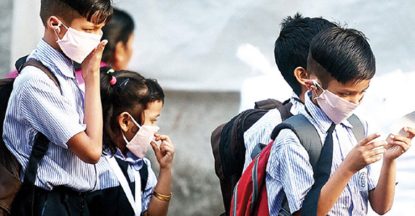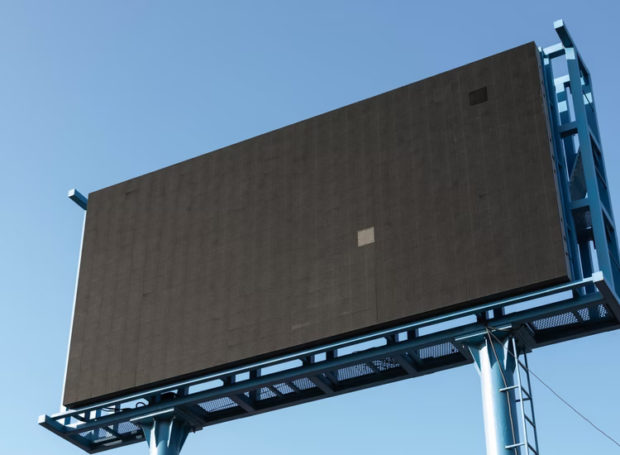
There is a long history of racist and predatory advertising in Australia. This is why targeted ads could be a problem
PTI, Oct 18, 2021, 10:16 AM IST

Source: unsplash
The internet has provided advertisers with the ability to fly below the radar of public accountability. This is because online ads are visible only to targeted individuals on their personal devices.
However history indicates that public accountability is crucial because advertisers have an established record of using harmful stereotypes and targeting vulnerable populations.
The Australian Ad Observatory in collaboration with the Centre for Global Indigenous Futures will investigate how targeted advertising online is affecting Aboriginal and Torres Strait Islander people with this in mind.
We will work with Aboriginal and Torres Strait Islander users to see what ads they are receiving on Facebook. Research indicates Facebook is one of the most popular platforms used by Aboriginal and Torres Strait Islander people.
Recent criticism of social media platforms has largely overlooked the significant cultural role played by advertising in reflecting and reinforcing social values and attitudes.
This is often done in ways harmful to Indigenous people, women and young people.
Facebook has been criticised for amplifying misleading, polarising and sensational information. But it does this for its primary business model: to sell ads based on the information collected about users and their social networks.
Racist advertising and stereotyping Public scrutiny has an important role to play in challenging advertising practices that are harmful to society.
A recent example of a marketing campaign resulting in public outcry and criticism, is the H&M ad that featured the image of a Black child wearing a sweatshirt that read, “coolest monkey in the jungle.” Another example is the Dove body wash ad that recycled racist associations of dark skin with dirt and uncleanliness. In both cases, public criticism led to the ads being cancelled and apologies from the companies involved.
Critiquing racist images and stereotypes is important because of the role they play in reinforcing racist attitudes and the actions and the policies they support.
For example, an early 20th century ad for Velvet Soap draws on the racist dark-skin-is-unclean trope to make a connection to racist policy.
The ad features a caricature of an Aboriginal woman scrubbing the “black” off the back of an Aboriginal child as she refers to the White Australia policy.
Wiradjuri scholar Kathleen Jackson highlights the connection between racist ads and harmful social policy in her discussion of the notorious Nulla-Nulla soap ad from the 1920s. The ad personified “dirt” in the form of an Aboriginal woman being beaten.
Degrading images and dehumanising stereotypes go hand-in-hand with violent and dehumanising acts.
The cultural images a society feeds to itself through its commercials do much more than sell products: they reflect and reinforce social values and associations.
Predatory advertising Harmful and degrading stereotyping is not the only sin of advertising – and not the sole reason for supporting ad accountability.
Australia has an ongoing history of predatory marketing to Aboriginal and Torres Strait Islander people that could be further facilitated by online ad targeting.
In 2018 the Royal Banking Commission revealed that financial institutions were deliberately targeting Aboriginal and Torres Strait Islander people with exploitative lending and insurance deals.
Similarly, in 2020 the Australian Competition and Consumer Commission found some Telstra representatives had engaged in predatory marketing practices towards Aboriginal people.
They did this by misrepresenting the terms of mobile phone contracts and falsely telling customers they were receiving the phones for free.
We do not know the extent to which stereotyping and predatory targeting are taking place online because we cannot see the ads.
A lack of accountability favours shady advertisers over public interest and well being.
It provides cover for advertisers who might be interested in strategies exploiting stereotypes or targeting vulnerable populations. History shows we cannot trust advertisers to hold themselves accountable.
New research addressing this issue The Australian Ad Observatory and the Centre for Global Indigenous Futures are inviting Aboriginal and Torres Strait Islander people to participate in research that will allow them to see how they are being targeted online.
To assist in this research, participants who use Facebook on a laptop or desktop computer can install a browser extension in a minute or two.
The extension does not collect any personally identifiable information – only the sponsored content appearing in their news feeds.
However the tool does collect some voluntarily provided information that allows us to see how Facebook users are being targeted by ethnicity, gender, age, and more.
The browser extension allows participants to see the history of all the ads they have received while it has been installed. Participants can then view the pattern of ads they receive, indicating whether they are being targeted for particular types of products or services.
(By Bronwyn Carlson, Professor, Indigenous Studies and Director of The Centre for Global Indigenous Futures, Macquarie University and Mark Andrejevic, Professor, School of Media, Film, and Journalism, Mon Melbourne)
Udayavani is now on Telegram. Click here to join our channel and stay updated with the latest news.
Top News
Related Articles More

Samsung reports a 10-fold increase in profit as AI drives rebound in memory chip markets

ISRO delayed Chandrayaan-3 launch by 4 seconds to dodge space debris, report says

ISRO releases ISSAR 2023 report on vulnerability of space assets to collisions

Private players will make space more accessible: ISRO chief

Study predicts accelerated warming of Indian ocean with catastrophic consequences
MUST WATCH
Latest Additions

This IPL is different, need to mentally accept challenge: KKR’s Varun Chakravarthy

6 killed, 3 injured as truck rams into jeep in Bihar’s Bhagalpur

Why has PM ignored plight of Marathwada’s farmers: Cong jabs Modi

Why is PM nervous even in BJP bastions: Cong jabs Modi after setback in Indore, Surat

Manipal: K V Kamath conferred with honorary doctorate at MAHE’s special convocation























